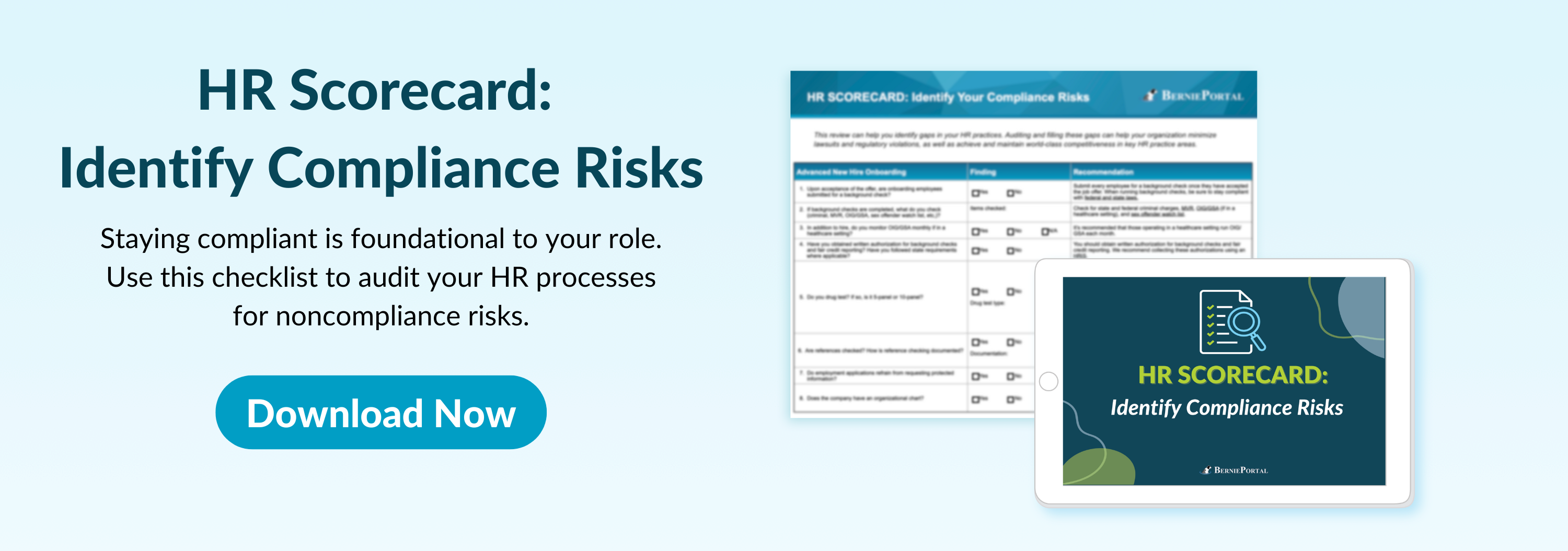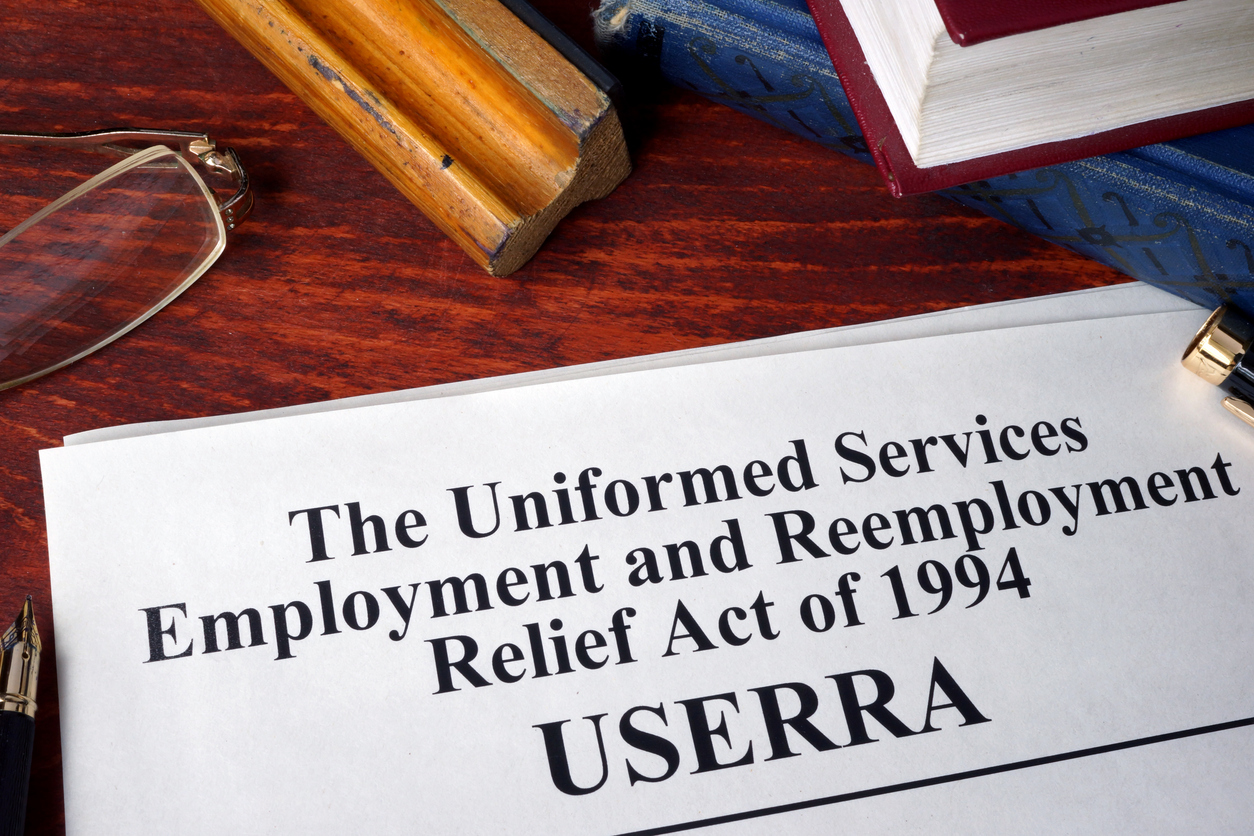
Written by
Aidan Farrish
Aidan is an aPHR-certified writer on the marketing team at BerniePortal. She writes about HR, healthcare, and benefits.
Compliance Check: Do Employees Have a Legal Right to Pray at Work?

The modern workplace is filled with employees from all different backgrounds and faiths. With such a diverse workforce, employers must understand their obligations to protect employees’ religious freedom under Title VII.
Read on to find out what you need to know about your employees’ rights regarding religious expression in the workplace.
Is It Legal for Employees to Pray at Work?
In short, yes, employees do have the right to pray at work. According to the Equal Employment Opportunity Commission (EEOC), "refusing to accommodate an employee's sincerely held religious beliefs or practices" is prohibited by Title VII of the Civil Rights Act of 1964. The same section says there is no basis for why employers should need to determine whether an employee holds a religious belief for the "proper" reasons.
However, there are exceptions—namely, if "the accommodation would impose an undue hardship (more than a minimal burden on the operation of the business)." The EEOC has also determined that religious practices may be sincerely held by an individual even if:
- It is a newly adopted faith or belief
- It is not consistently observed
- It is different from the commonly followed tenets of the individual's religion
- The employee follows some common practices in the faith tradition but not others
Group prayer at work is acceptable only when it is voluntary. In a recent case, EOC vs. Aurora Renovations and Developments, two employees of a home service repair company in North Carolina sued their employer after they were terminated for not partaking in mandatory daily prayer meetings. Title VII explicitly forbids employers from coercing employees to participate in religious activities. It is a reminder of how important it is for employers to understand the laws and regulations surrounding religious freedom in the workplace.
How To Accommodate Prayer in the Workplace
As a best practice, employers should communicate that they will make an effort to provide reasonable religious accommodations to all employees. It’s important to make sure managers are also trained to recognize these requests from team members.
Other best practices include:
-
Flexible scheduling to accommodate religious practices
-
Voluntary shift substitutions or swaps (e.g., if an employee cannot work during a religious holiday such as Yom Kippur)
-
Job reassignments when accommodations cannot be made
-
Modifications to workplace policies or practices (e.g., wearing a beard or religious garbs like a yarmulke or hijab)
-
Permitting prayer, proselytizing, and other forms of religious expression
The EEOC points out that some employees might want to display religious icons or messages at their workstations, use a religious expression when greeting colleagues, or partake in prayer or religious study during the workday. In some of these instances, the EEOC states that employees can request an accommodation in advance to engage in religious expressions and practices.
Likewise, employees should adhere to the following best practices:
-
Informing their managers if their religious needs conflict with workplace rules
-
Provide enough information that lets the employer know what accommodation is needed and how it applies to religious practice, belief, or observance
- Stop proselytizing to coworkers if the communications aren't welcome.
What Accommodations Are Unreasonable to Employers?
Employers may want to determine if religious activities pose an undue hardship on the business or other employees. Under these circumstances, HR professionals should consider the potential disruption (if any) posed by the religious expression activities, including:
-
Effect on the Workplace Rights of Coworkers: If a religious activity or expression disrupts the work of an employee’s colleagues or constitutes or threatens to constitute unlawful harassment. This could include demeaning coworkers of other religions or if the expression “persists even though it is clearly unwelcome.”
-
Effect on Customers: Undue hardship posed by religious expression towards customers can include instances where employees are specifically proselytizing, meaning the worker in question is attempting to convert a customer to their faith tradition.
The EEOC also warns that employers must assess the undue hardship posed by a religious expression on coworkers on a case-by-case basis.
For more information about equal opportunity employment practices, please refer to eeoc.gov.
Another court case to keep in mind is Groff v. DeJoy, in which the Supreme Court will determine reasonable religious accommodations in the workplace. For more information on this 2023 court case, read Will Groff v. DeJoy Change Religious Accommodations in the Workplace? to get a breakdown of the case, any precedents to consider, and how it may affect your organization.
Additional Resources
You can also stay informed, educated, and up-to-date with EEOC regulations and other important topics by using BerniePortal’s comprehensive resources:
- BerniePortal Blog—a one-stop-shop for HR industry news
- HR Glossary—featuring the most common HR terms, acronyms, and compliance
- HR Guides—essential pillars, covering an extensive list of comprehensive HR topics
- BernieU—free online HR courses, approved for SHRM and HRCI recertification credit
- HR Party of One—our popular YouTube series and podcast, covering emerging HR trends and enduring HR topic

Written by
Aidan Farrish
Aidan is an aPHR-certified writer on the marketing team at BerniePortal. She writes about HR, healthcare, and benefits.
Related Posts
In 2023, iTutorGroup, an online learning platform based out of China, used an Artificial...
On April 15, 2024, the U.S. Equal Employment Opportunity Commission (EEOC) issued a final...
In 2023, LeRoy Torres, an army reservist and Texas state trooper, was awarded $2.49...
The Office of Federal Contract Compliance Programs (OFCCP) defines Affirmative Action as...








Submit a Comment